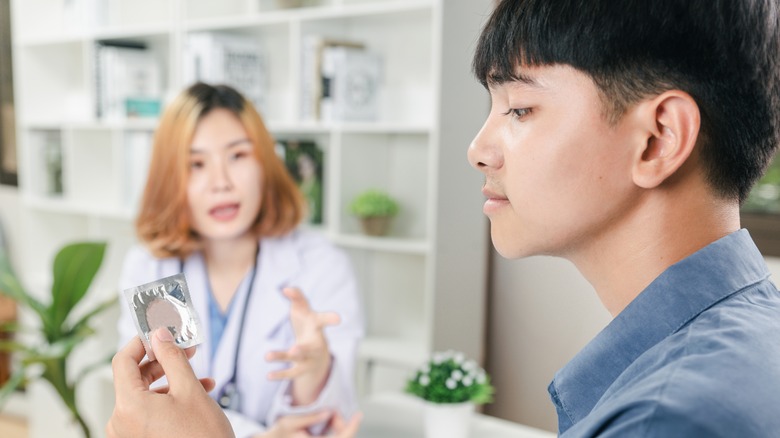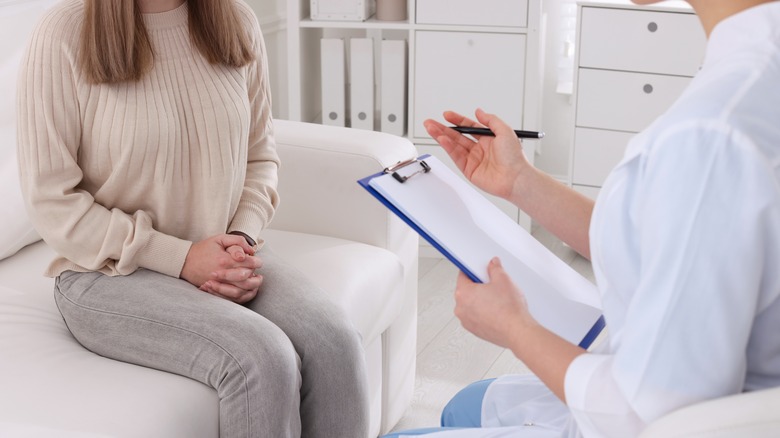Can STDs Come Back After Being Treated?
Since our early teenage years, we've all been taught the importance of engaging in safe sex. This is primarily because unprotected sex can increase the risk of contracting sexually transmitted diseases (STDs), such as chlamydia, gonorrhea, hepatitis B, herpes, HIV/AIDS, and syphilis (per Planned Parenthood). Thankfully, many STDs are simple to treat, but they can lead to severe health problems if left untreated. Chlamydia, in particular, is one of the most common STDs, with approximately 3 million Americans contracting it every year, explains Planned Parenthood.
Many cases of STDs have subtle symptoms that aren't easily noticeable, so regular STD testing is vital. The U.S. Centers for Disease Control and Prevention (CDC) recommends that anyone who has been sexually active gets tested for STDs and informs their doctor of their sexual history with openness and honesty. Testing for HIV should be done at least once for adolescents and adults between the ages of 13 and 64. Men who engage in sexual activity with other men should get regularly tested for syphilis, chlamydia, gonorrhea, HIV, and hepatitis C if they have HIV.
Being diagnosed with an STD can be anxiety-provoking, but the good news is that many can be treated fairly easily. The Mayo Clinic reports that antibiotics are used to treat many STDs, like gonorrhea, chlamydia, and syphilis, and can sometimes even cure the disease in one dose. But once an STD is treated, is it possible for it to come back?
Will a treated STD come back?
It's understandable that people who have successfully treated an STD may worry about whether it will return. According to Rapid STD Testing, it's certainly possible that an STD can come back, particularly in the cases of chlamydia and gonorrhea. If all the bacteria responsible for the disease aren't gone, or if the disease is contracted from a new partner, reinfection can occur. If someone is prescribed the incorrect medication, they may also experience a repeat infection, so it is important to undergo a full 10-panel STD test to ensure effective treatment.
Someone who is diagnosed with an STD should also make sure to take their medication as prescribed. Antibiotics should be taken to completion, as stopping the medication early can prevent the full removal of the infectious bacteria and lead to a repeat infection.
If someone continues to partake in unsafe sex after their STD has been treated, it's possible to contract a new STD, as explained by NURX. Additionally, someone may become reinfected by engaging in sexual activity with a partner who is asymptomatic and has not been treated. For these reasons, anyone who has had an STD in the past should make sure to retest regularly, as retests look for the presence of new infections (per Rapid STD Testing).


